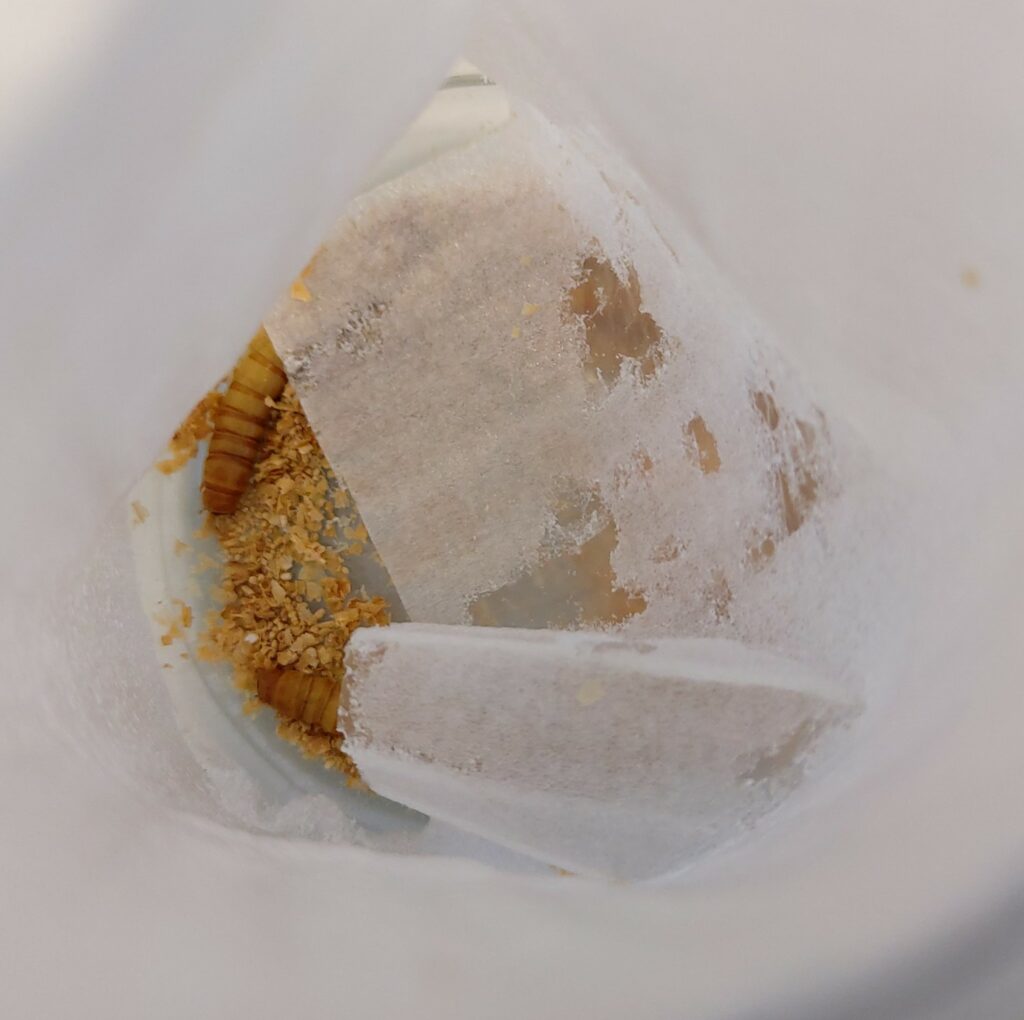Insects as bio-transformers
The challenge
Ever wondered what happens to plastic consumed by insects?
Our research is hoping to answer questions such as:
- Can they bio-transform specific types of plastic and does it transfer to insect protein products?
- Do black soldier flies avoid plastic or do they consume it?
- If they do consume it (like a mealworm might) does the plastic end up in insect protein or do they excrete it?
- Do different diets ‘waste streams’, including plastics, influence insect protein?
Our response
We are carrying out research to investigate how insects such as the wax moth, mealworm and black soldier fly manage microplastic contamination in waste.
A mealworm with LDPE plastic (Image Source: CSIRO).
Using an insect model, our team will determine the fate of plastics in insects, together with transcriptomic (which is the study of RNA transcripts for a cell, tissue, organ or whole organism to understand gene expressions), lipidomic (the study of lipid pathways in biological systems) and proteomic (the study of proteins) analysis.
Impact
Our aim is to identify potential biocatalytic enzymes (i.e. natural substance that could speed up chemical reactions) that could be exploited to degrade plastics.
The long-term goal of the research is to isolate, validate and engineer enzymes which could be used to process plastic from waste quickly, completely and at commercial scale.


